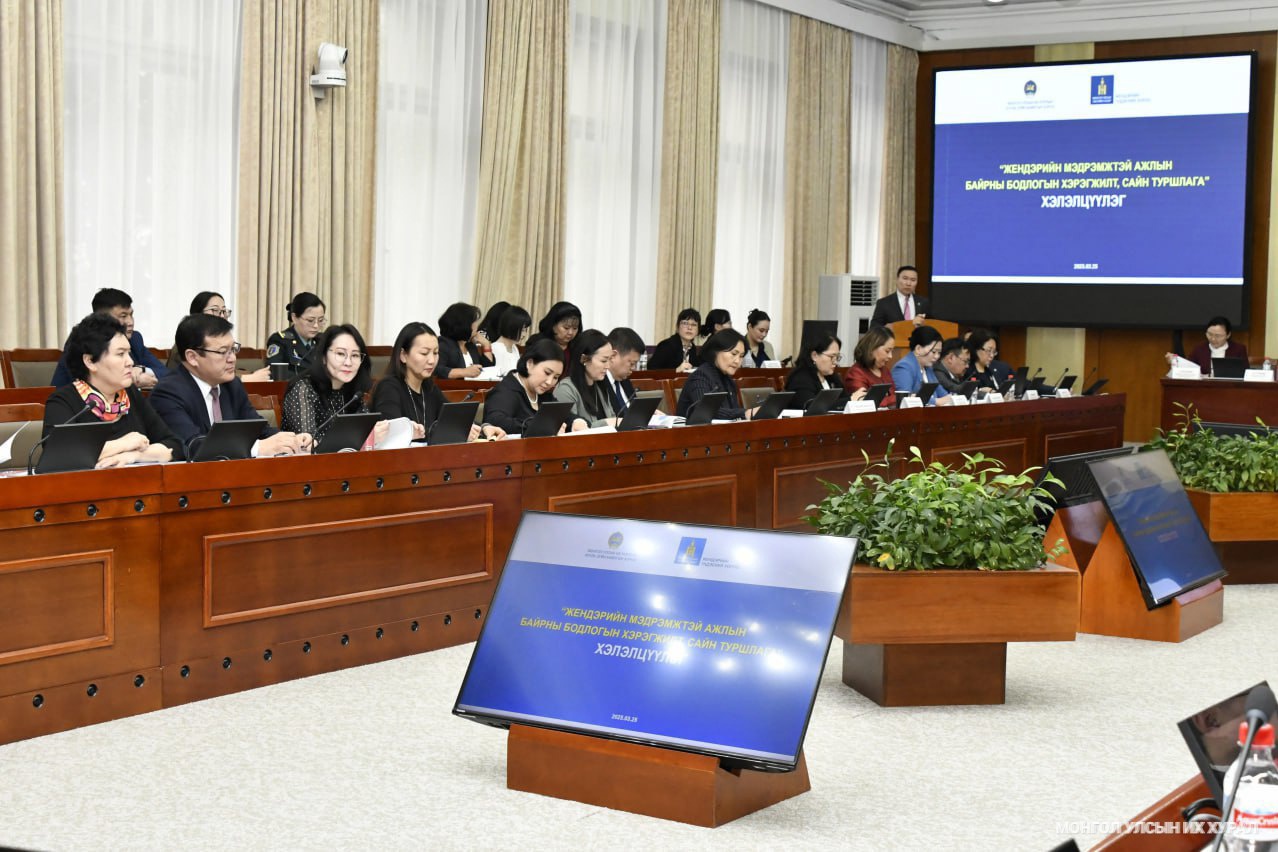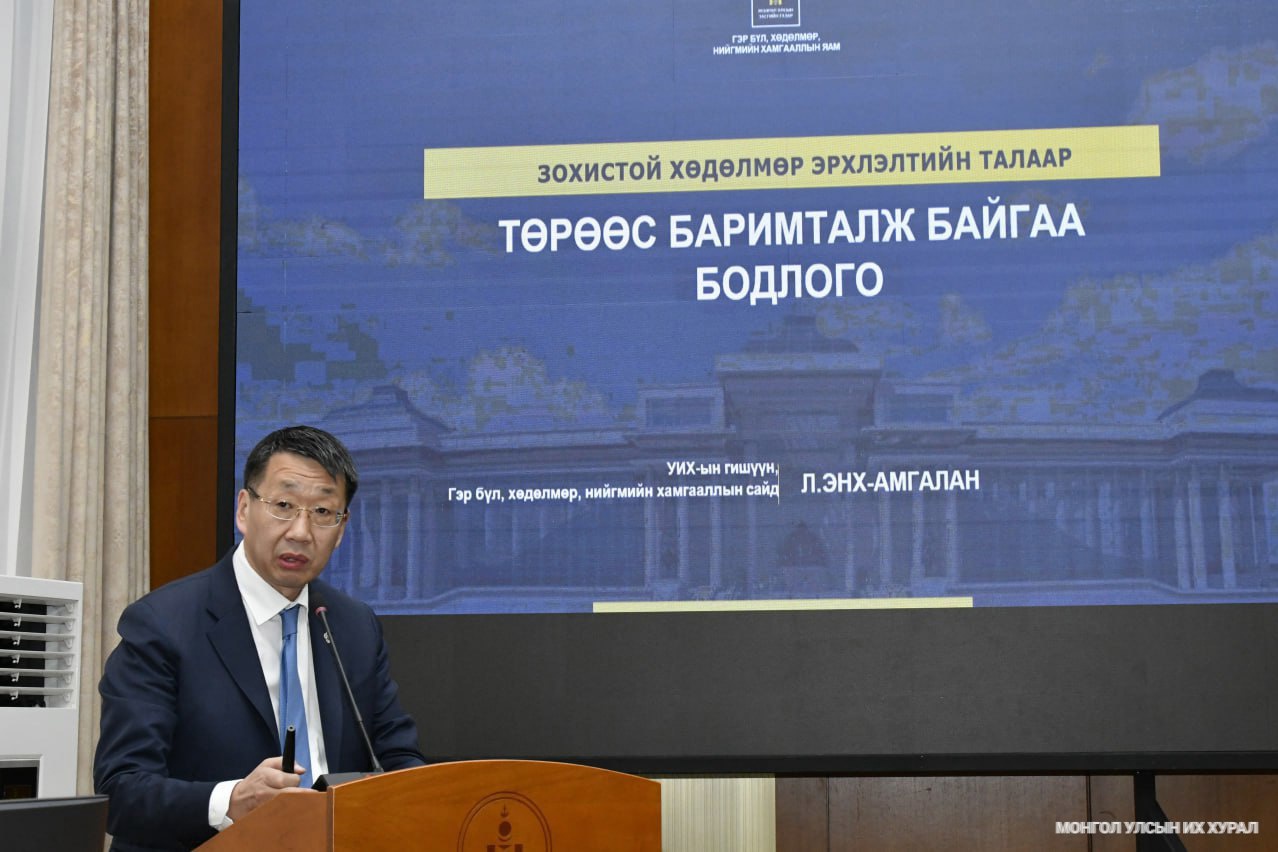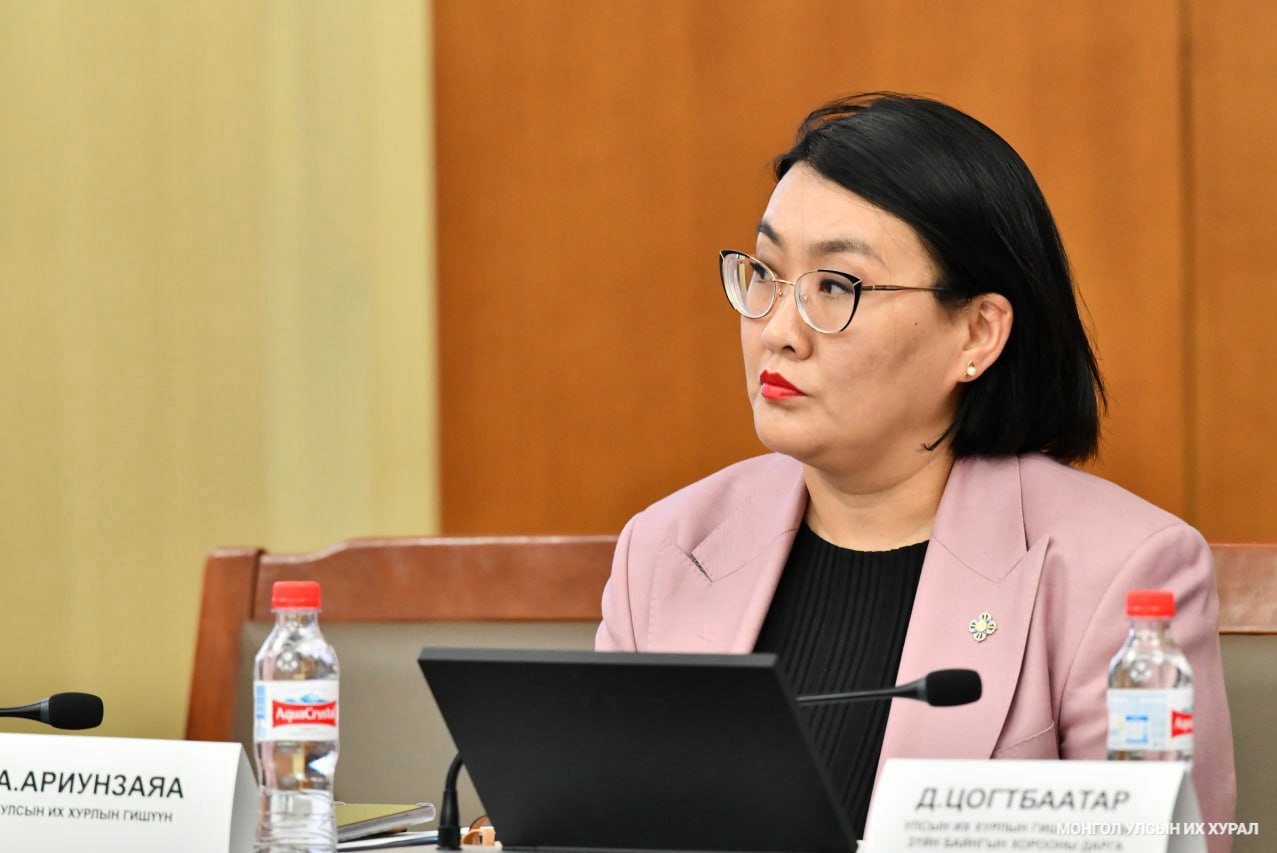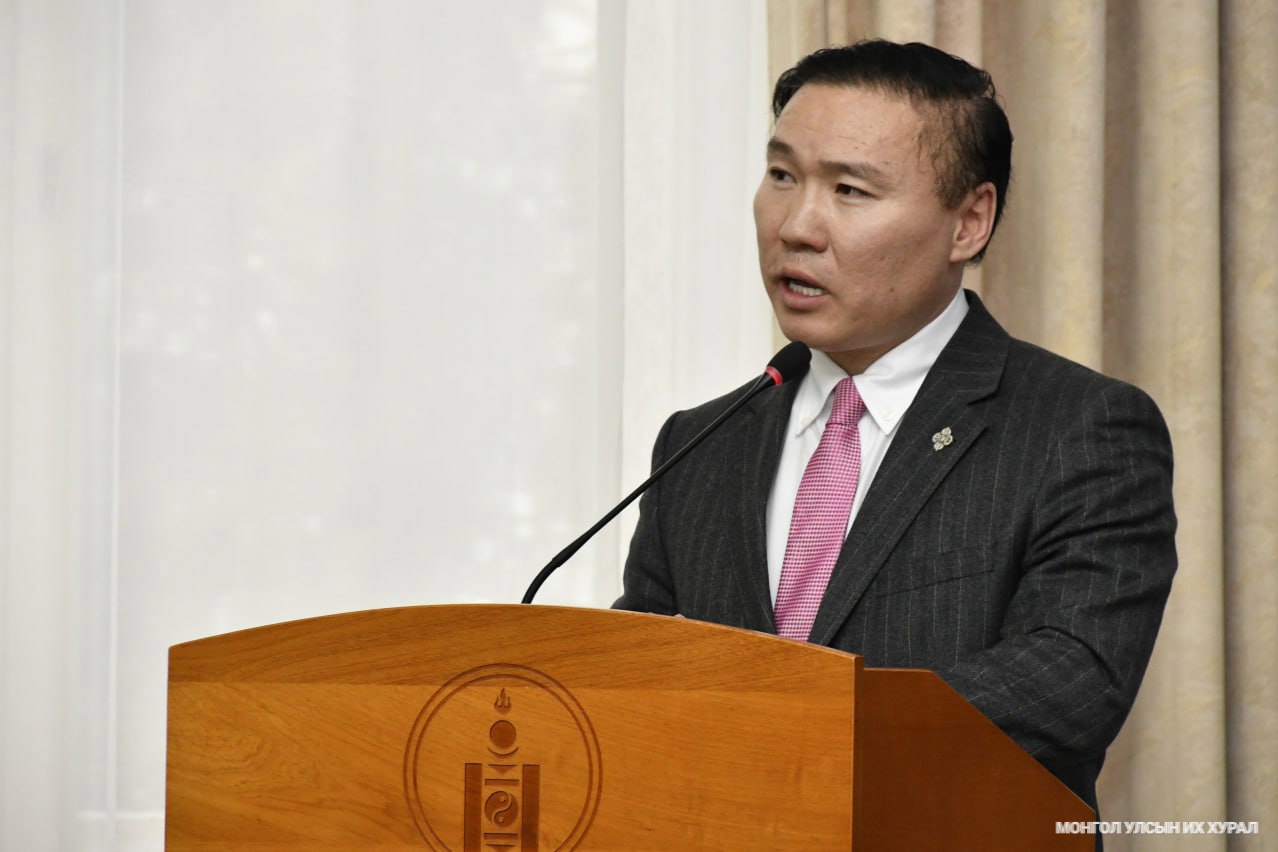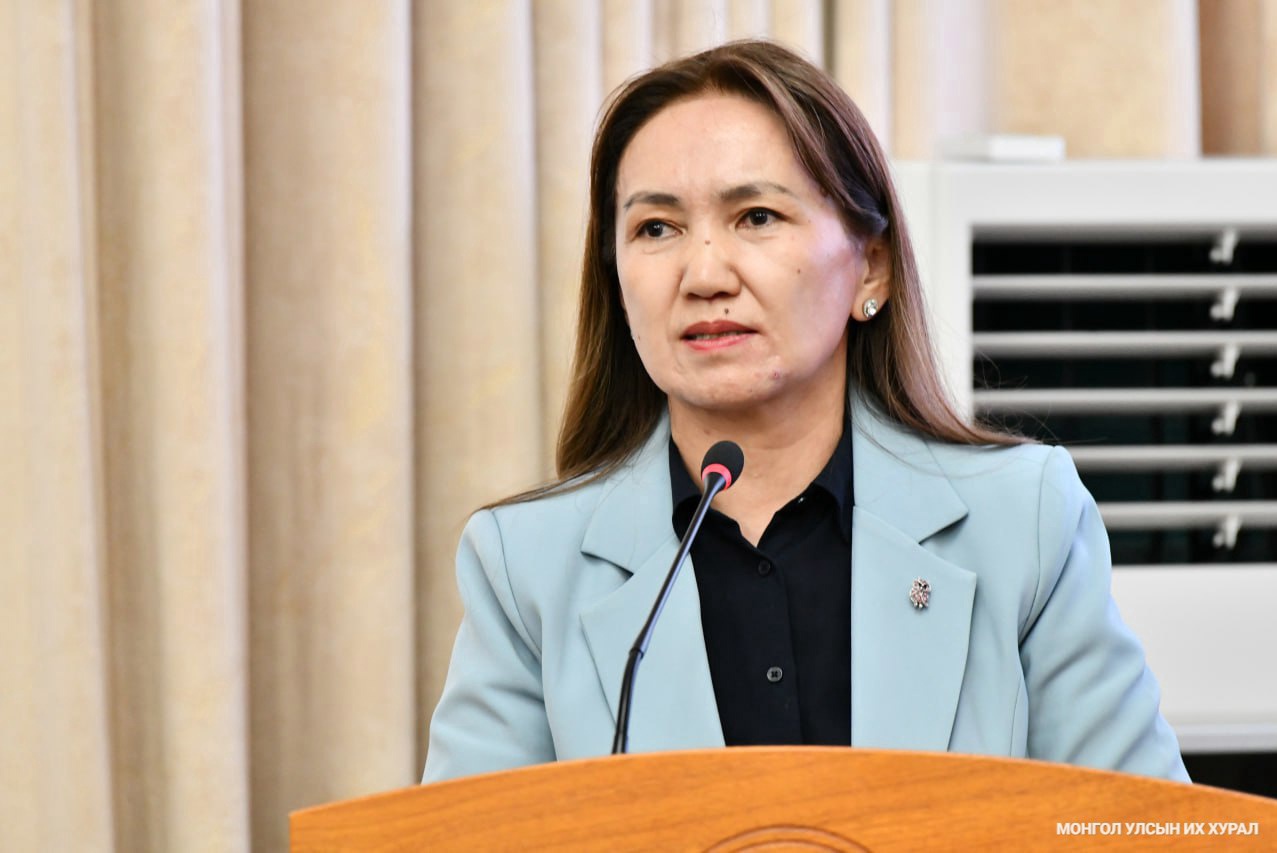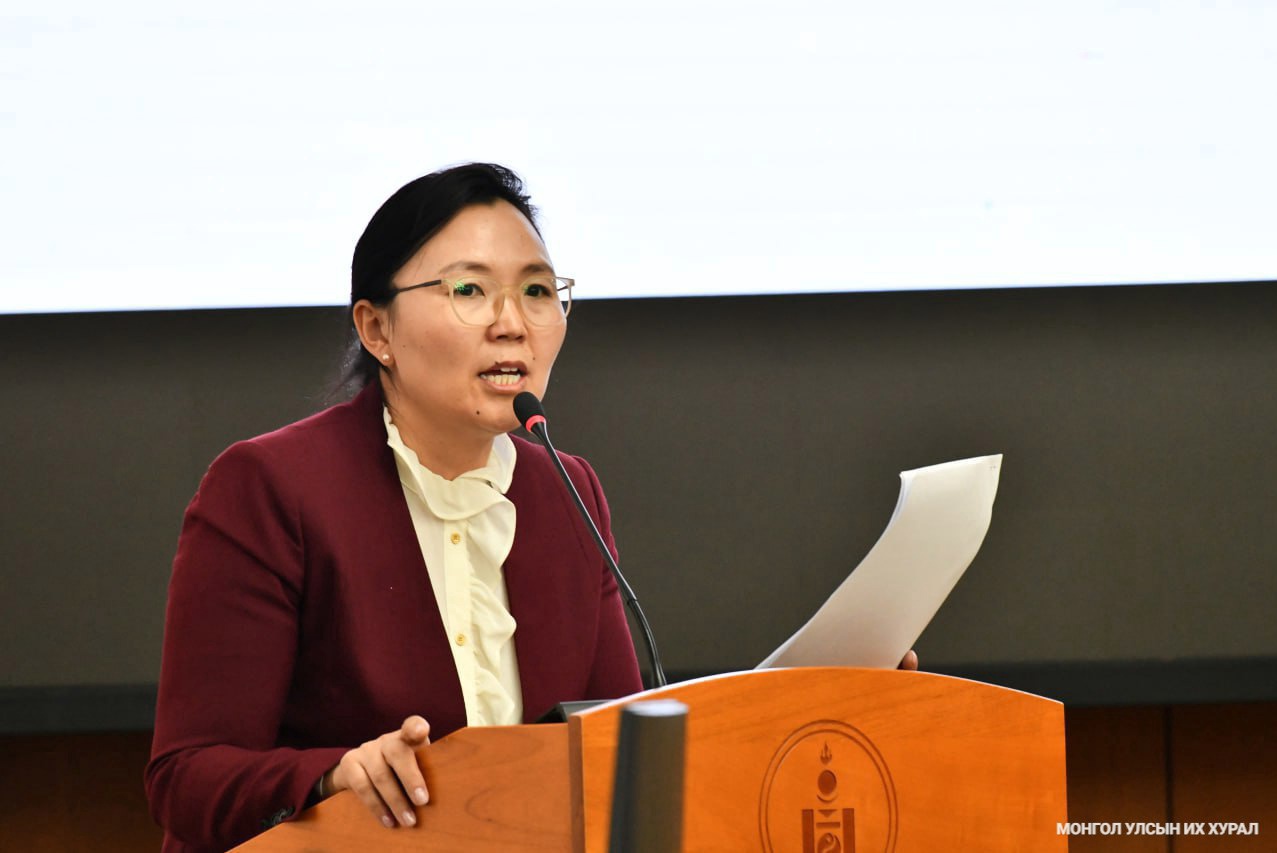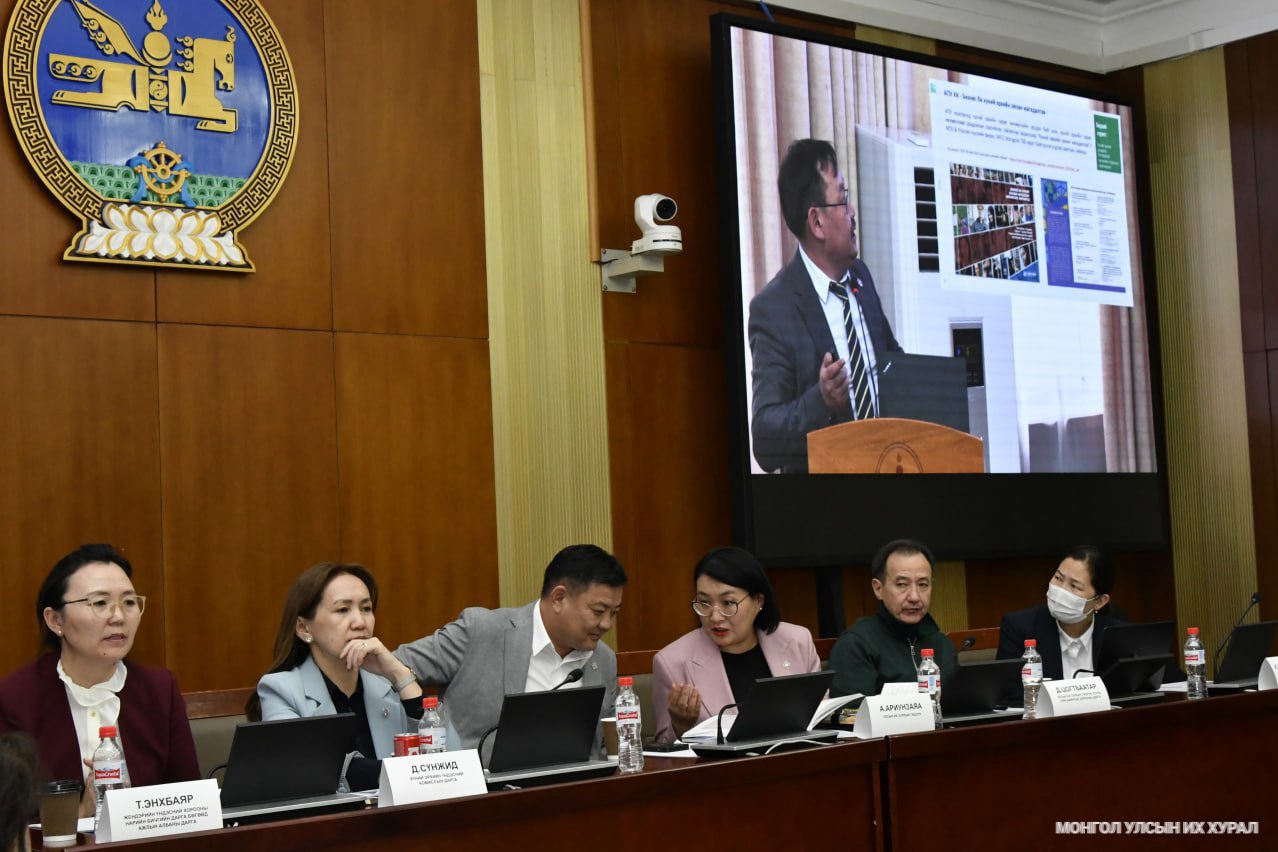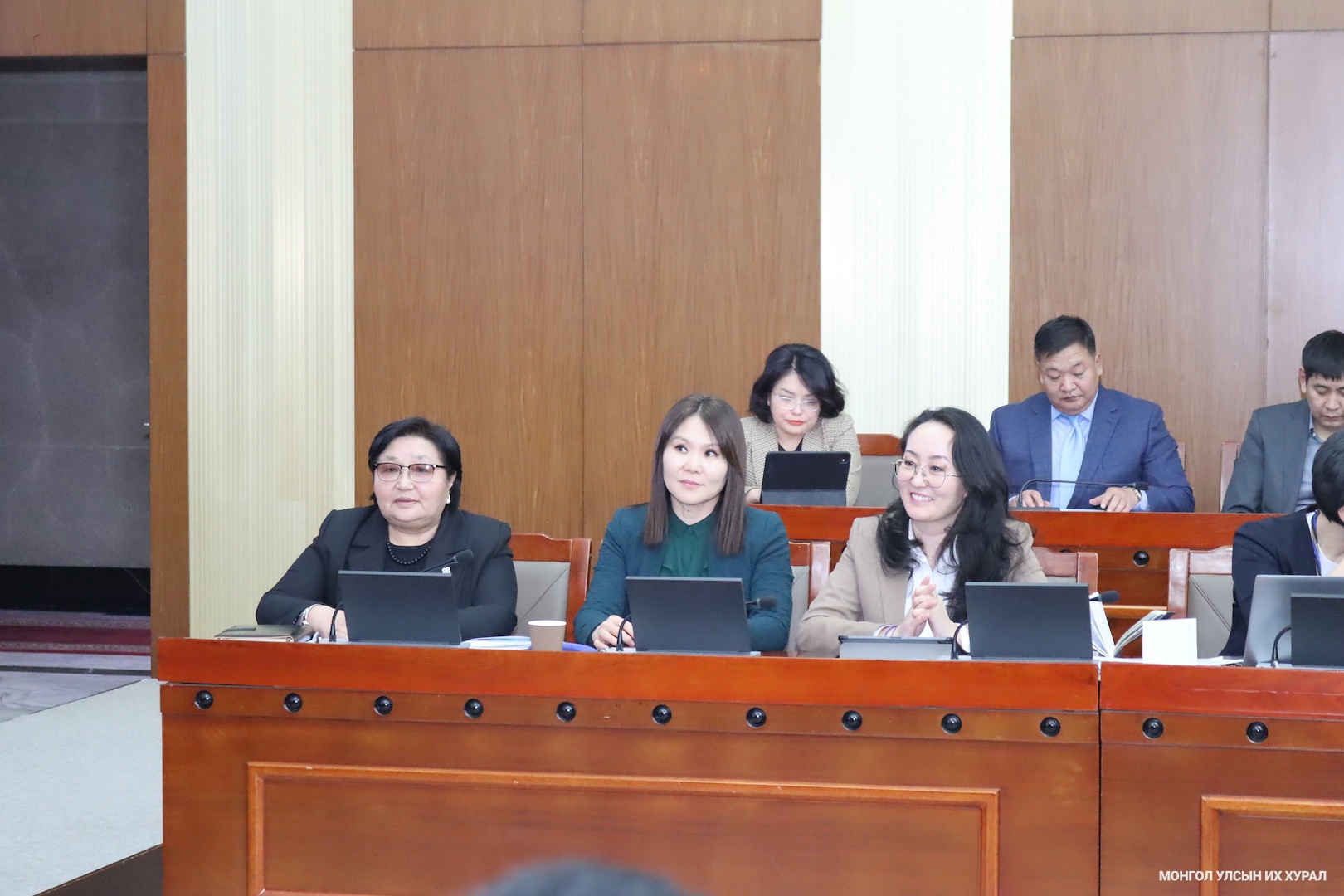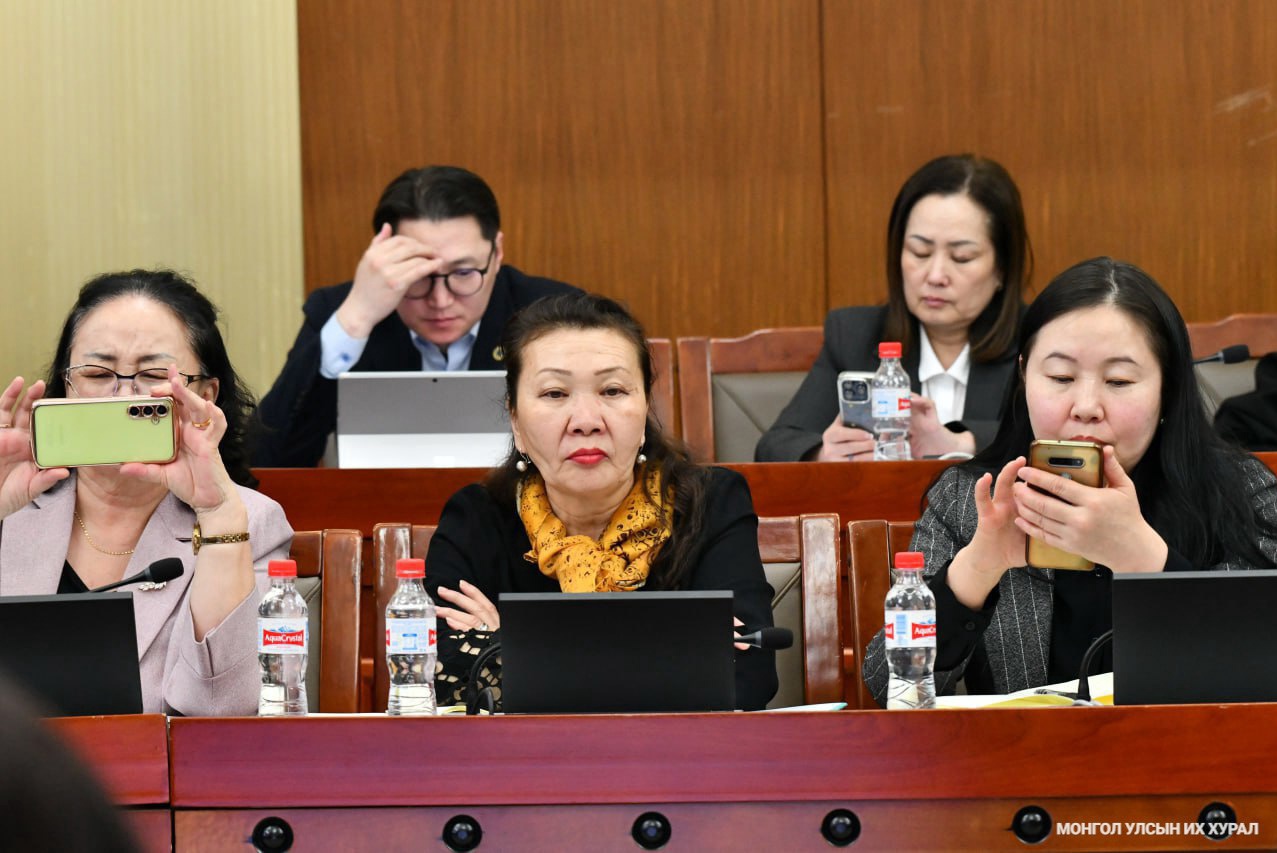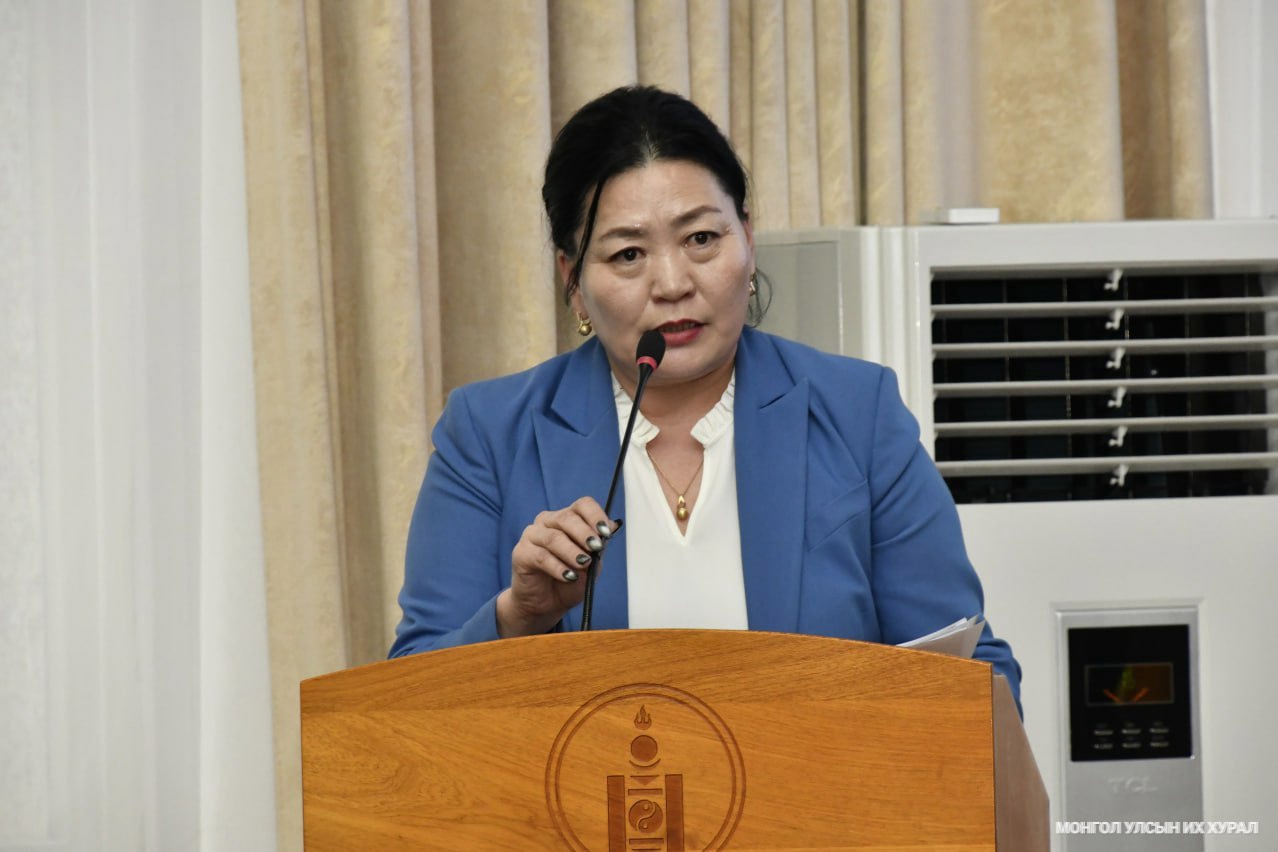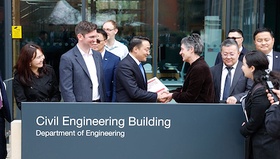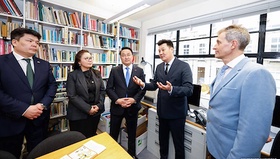The Standing Committee on Justice of the State Great Hural (Parliament), the National Committee on Gender Equality, and the Policy Council under the National Committee jointly organized a discussion on “Implementation and Best Practices of Gender-Sensitive Workplace Policy” today (2025.03.25).
The discussion was attended by Member of Parliament and Chair of the Standing Committee on Justice D. Tsogtbaatar, MP and Head of the Subcommittee on Human Rights S. Erdenebold, MP and Minister for Labour and Social Protection L. Enkh-Amgalan, and MPs A. Ariunzaya, Kh. Baasanjargal, D. Enkhzaya, B. Munkhsoyol, and S. Zamira. Also participating were Chair of the National Human Rights Commission D. Sunjid, Secretary-General and Head of the Secretariat of the National Committee on Gender Equality T. Enkhbayar, as well as representatives from all 16 ministries, affiliated agencies, NGOs, and the private sector—bringing the total number of participants to around 100.
The objective of the discussion was to raise awareness of the importance and impact of gender-sensitive workplace policy, align the understanding and goals of stakeholders, encourage action, and promote public awareness for successful implementation.
MP and Head of the Subcommittee on Human Rights S. Erdenebold delivered the opening remarks, and MP A. Ariunzaya moderated the event.
Minister for Labour and Social Protection L. Enkh-Amgalan presented government policy on “Decent Work.” He pointed out that women's labor force participation remains low and the gender pay gap currently stands at 12 percent. The ministry plans to revise several laws, including the Law on Employment Promotion, the Law on Social Welfare, the Law on Family Development, and the Law on Care Services, to better support women’s employment.
National Human Rights Commission Chair D. Sunjid delivered a presentation on “Human Rights Issues in Labor Relations,” highlighting statistical data on child labor and its negative consequences. She emphasized that children in vulnerable situations face high risks of exploitation and noted that workplace harassment is a significant contributor to labor rights violations.
The discussion continued with a presentation by Secretary-General of the National Committee on Gender Equality T. Enkhbayar titled “Implementation of Gender-Sensitive Workplace Policy – Sector-Level Insights,” which outlined policy objectives, implementation strategies, and operational directions.
Further presentations included “Gender-Sensitive Organizational Culture and Workplace Environment” by Ts. Amartugs, Member of the Civil Service Council and Chair of the Ethics Committee, and “Survey Findings on How Businesses Are Implementing Gender Equality Provisions in the Labor Law” by A. Amarbal, Advisor at the Secretariat of the National Committee on Gender Equality.
In addition, contributions were made by Ya. Altantuya, Deputy President of the Confederation of Mongolian Trade Unions; E. Enkhjargal, Director of the General Coordination Department of the Mongolian Employers’ Federation; B. Tuvshinjargal, HR specialist at Mobicom Corporation; B. Saruul, Secretary-General of the Mongolian National Chamber of Commerce and Industry; and B. Erdenedelger, First Deputy CEO of Khan Bank. Their presentations addressed issues such as “Preventing Workplace Harassment and Creating Discrimination-Free Environments” and “Delivering Gender-Sensitive Products and Services.”
Participants actively engaged in discussions, asked questions, and shared their views based on the presentations.
The proposals and conclusions from the discussion will be compiled and submitted to the National Tripartite Committee on Labor and Social Consensus for further implementation.

 Eng
Eng  Монгол
Монгол